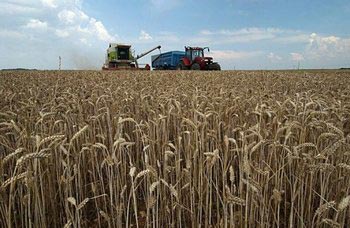'Super weapon' protects crops
Nature Biotechnology (UK) reported on March 14 that researchers at the Sainsbury Laboratory found a "super weapon" in the race against crop-threatening bacteria.

Initially, the researchers extracted the PRR gene immune system, a gene responsible for detecting bacterial pathogen-secreting proteins when they invade plants, then transplanting PRR into two the tree belongs to the tomato family.
The results showed that the plants of the tomato family developed significantly increased resistance to many different bacterial species, including bacterial wilt.
Researchers explain proteins that play a key role, including in human bones and skin and in the case of bacteria that are pathogenic, less likely to change.
Meanwhile, additional implantation of PRR in cabbage plants into the kinase gene caused pathogenic bacteria to have no chance of adapting to this genetic modification in the family plants.
Bacteria are the cause of crop failure. Farmers often deal with this pathogen by spraying plants with chemicals, a cost-effective measure that risks losing the biodiversity of the soil, or mating with a tree of the same kind higher resistance.
However, breeding techniques do not help plants with immunity to many types of bacteria. Even if the plant has developed immunity, bacteria can still be modified to adapt to this new immunity.
The researchers hope that with the implantation of the PRR gene, they can increase resistance to many plants that traditional crops cannot.
- The horrors of Hitler's super weapon melt ... people
- Unveil the new super weapon of the great harm of humanity
- Detection and conservation of wild food crops
- German newspaper voted 5 strongest TG weapons: China brought unexpected surprises
- 'Super beans' helps solve hunger in the world
- New information technology helps to bring in bumper crops
- Russian super weapons make aircraft, rockets frozen
- Protect houses and fields by road
- Impressive figures on American super weapons
- Battery-powered submarine
- The fetus protects itself before being born
- Super weapon network war: Stuxnet, mysterious computer worm
 Why do potatoes have eyes?
Why do potatoes have eyes? 'Tragedy' the world's largest carnivorous life: Death becomes ... public toilet
'Tragedy' the world's largest carnivorous life: Death becomes ... public toilet Tomatoes were once considered 'poisonous' for 200 years
Tomatoes were once considered 'poisonous' for 200 years Detecting microscopic parasites on human face
Detecting microscopic parasites on human face